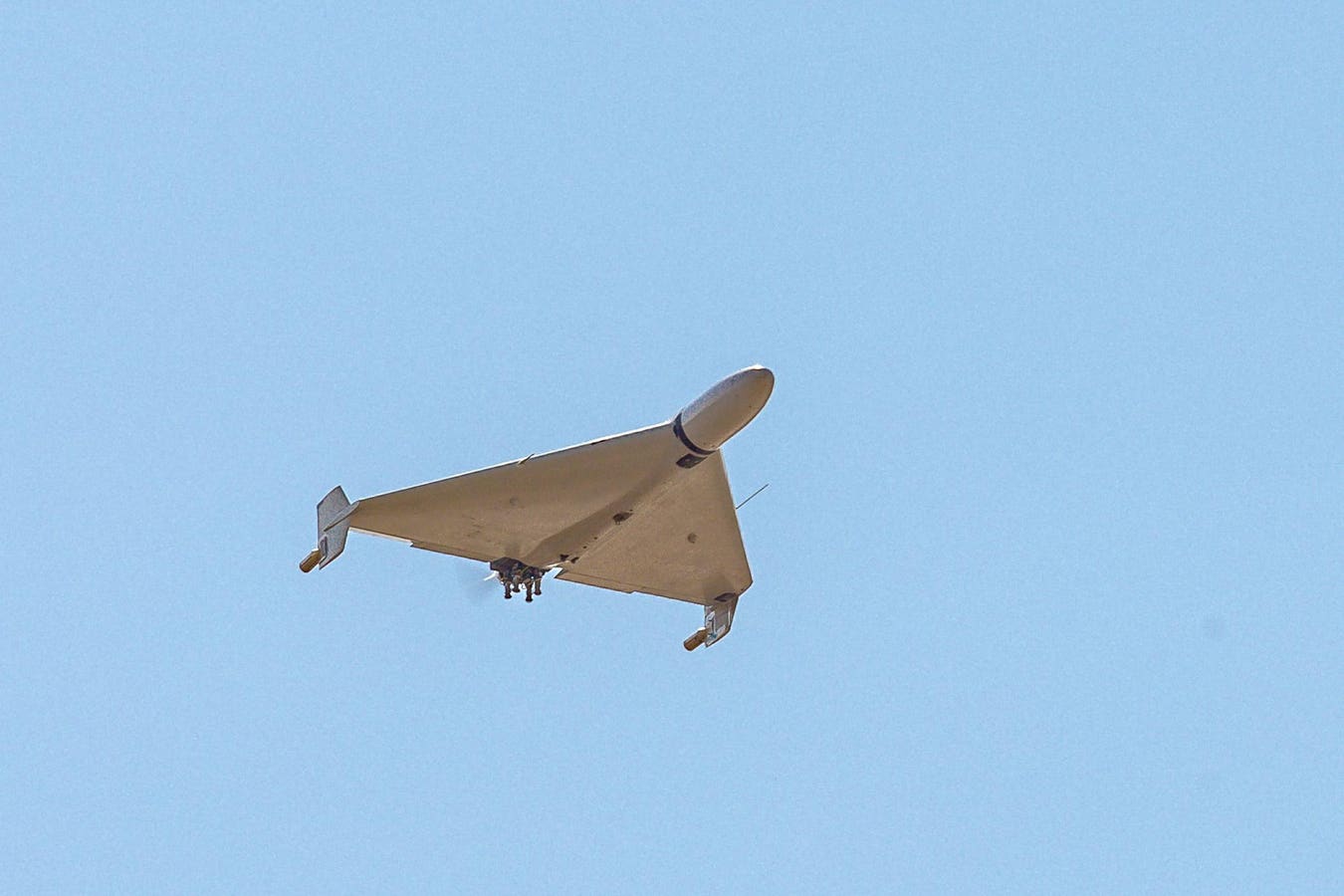Israel is presently deciding how it will respond to Iran’s unprecedented drone and missile attack against it on Saturday night. A direct Israeli retaliation on Iranian territory to the first major direct attack against Israel from Iran would undoubtedly be unprecedented in many ways. On the other hand, it wouldn’t be entirely without any precedent.
Several analysts and pundits highlighted how Saturday night’s attack against Israel was the first ever launched directly from Iran rather than through one of its regional proxies.
Iran’s enormous strike package consisted of at least 170 drones along with 120 ballistic missiles and 30 cruise missiles, according to Israeli military spokesperson Daniel Hagari. None of the drones made it to Israel, while Israeli fighter jets intercepted 25 of the cruise missiles. Furthermore, most of the ballistic missiles were intercepted, with some causing “minor damage to infrastructure” at Nevatim Air Force Base in southern Israel.
U.S. President Joe Biden has already told Israeli Prime Minister Benjamin Netanyahu that Washington won’t support an Israeli counterattack against Iran. Biden characterized the Iranian attack as a failure thanks to joint efforts by the U.S., Israel, and other allies to destroy the overwhelming majority of the incoming Iranian munitions. “You got a win,” he reportedly said to Netanyahu. “Take the win.”
Tehran has stressed that the attack was a one-off in retaliation for the Israeli assassination of Islamic Revolutionary Guard Corps officers in the Iranian embassy compound in Syria’s capital on Apr. 1 and warned it could launch a much deadlier strike if Israel or the U.S. strike Iran.
When asked if Israel would retaliate, Hagari seemingly left the possibility open. “We have plans, the situation is still ongoing, we are assessing the situation, we are showing the cabinet the plans, and we are ready to do what is necessary for the defense of Israel,” he said on Sunday.
Israel’s war cabinet is meeting on Sunday afternoon to discuss options. Netanyahu has already reportedly called off a retaliatory strike proposed by some cabinet members after his call with Biden. A powerful retaliation may not be in the cards since the Iranian strike ultimately caused only minor damage. Nevertheless, Netanyahu’s far-right coalition partners may pressure him to do something.
When, where, and how Israel might respond has yet to be seen. But it’s worth bearing in mind that an Israeli attack on Iranian territory wouldn’t be the first time that has happened.
In December, former Israeli Prime Minister Naftali Bennett wrote an editorial for The Wall Street Journal in which he confirmed a strike Israel was widely suspected of carrying inside Iran during his single year as premier.
“I directed Israel’s security forces to make Tehran pay for its decision to sponsor terror,” Bennett wrote. “Enough impunity. After Iran launched two failed UAV attacks on Israel in February 2022, Israel destroyed a UAV base on Iranian soil.”
On Feb. 12 of that year, Israel is believed to have sent six explosive-laden quadcopter drones into Iran to attack a drone manufacturing facility near the western Iranian city of Kermanshah. The attack successfully destroyed several Iranian drones. One Israeli news site even estimated the attack destroyed “hundreds” of drones.
In the months leading up to that attack, Israel had intercepted several incoming Iranian drones over the region. The Israeli Air Force carried out the first operational intercept of a drone by an F-35 against two Iranian drones headed toward Israel in March 2021.
Iran indirectly responded on that occasion by firing ballistic missiles at the home of a businessman in Iraqi Kurdistan’s capital city, Erbil, the following month. While the first attack didn’t kill or injure anyone, a follow-up Iranian attack this January against the home of another businessman in Erbil left four civilians dead. Tehran claimed, without any evidence, on both occasions that it had targeted bases belonging to the Israeli Mossad intelligence agency, a claim categorically denied by Kurdish authorities.
The February 2022 attack on Iranian soil and the March 2022 Iranian missile strike on Erbil were both overshadowed by the onset of Russia’s full-scale invasion of Ukraine on Feb. 22, 2022. Israel was believed to have been behind another covert attack using quadcopter-type explosive drones against a building related to Iran’s missile program near the city of Isfahan in central Iran on Jan. 28, 2023.
Today, if Israel decides to retaliate to demonstrate it is unfazed and not deterred by Iran’s attack, it might choose a more overt, and perhaps even highly publicized but largely symbolic, attack against an Iranian target than these more shadowy precedents. Although given the decimation of a highly impressive 99 percent of the Iranian drones and missiles on Saturday night, Netanyahu may ultimately agree to “Take the win.”
Read the full article here





